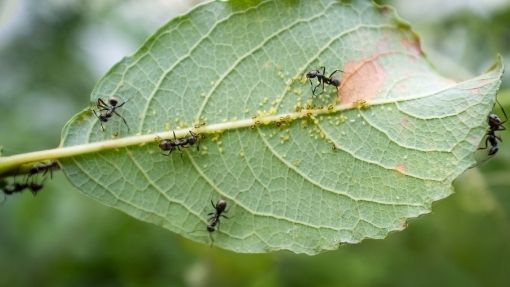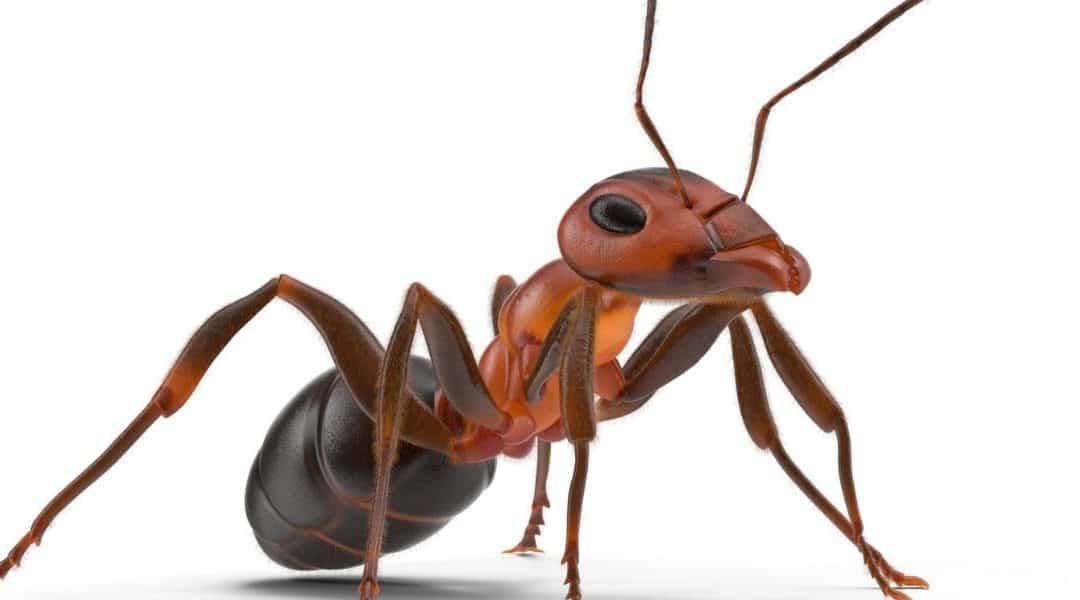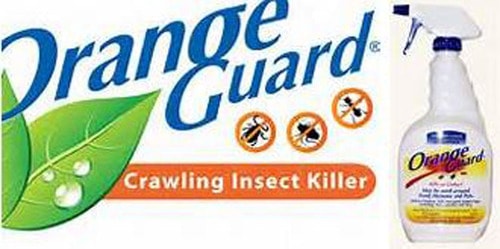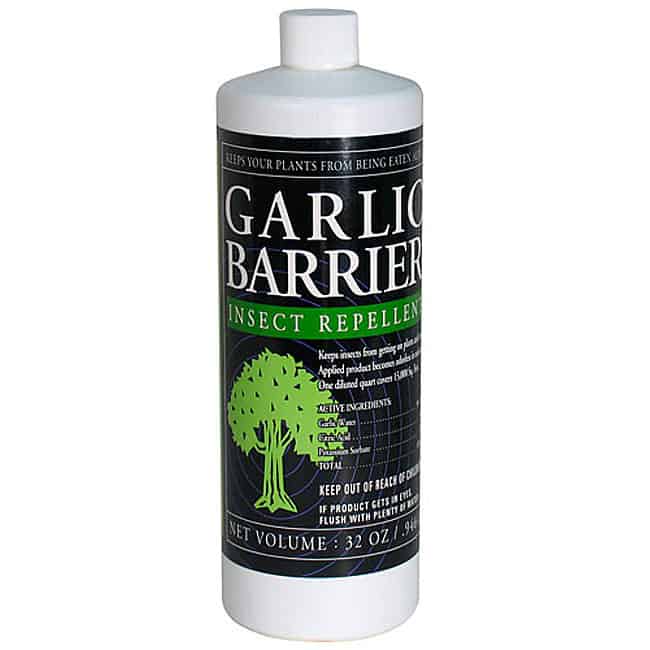Problem Pests
Gardening is a fun adventure that everyone should explore. It teaches true patience and the benefits of hard work. However, gardening is a task that requires constant attention, especially if you acquire pests like ants! Pests are everywhere. Whether they are visible or currently invisible, they are bound to be revealed. Where will they go? The ones that don’t manage there way into your home will happily feast on your young garden plants and may even start farming aphids or mealybugs. I guess it’s better than having them cross the sidewalk to find a way into your home and eventually the kitchen pantry, but those industrious little pests just have to go!
Growing up I can remember my great-grandmother would save her old cooking water that was still boiling to quickly take outside and scold the little bastards to death. That’s about as close to organic pest control as she ever got and probably something she picked up during the great depression. It wouldn’t deal with the whole colony of course, which had her resorting to chemical pesticides in just about every case. These days we’re fortunate to have a good selection of natural ant repellents that are safer for people and pets.
And speaking of grandparents, I’m sure yours used the phrase ‘an ounce of prevention is worth a pound of cure’ a time or two, correct? Well that’s what we’re looking into today in this article. We’re going to cover a few ways you can repel ants and prevent the problem naturally, just by planting a few things that ants hate being around like mint and rosemary. Let’s get started with these helpful tips on plants that repel ants:
The Evolution of Ants
While houseplants may not attract a lot of ants into the house, your garden could be at a higher risk for insects taking in interest in the things growing up around them. Sometimes plants can get infested with aphids. Ultimately aphids suck the sap out of your plants. That sweet sap is what is sensed by ants and that is where their mission begins. Once ants discover that scent, they are compelled to follow. They sort of take over the area and actually farm the aphids so that they have access to the honeydew they produce by feeding on certain plants.
Check out this guide to controlling aphids by the University of California to learn more: http://ipm.ucanr.edu/PMG/PESTNOTES/pn7404.html
In the event you do encounter aphids and ants working in tandem to trash your garden, it is best to get rid of the issue as soon as possible. Interestingly enough, ants have also been known to farm other insects like scale and mealybugs as well, simply to get access to the waste they produce while feeding. That’s your disgusting yet true fact for the day! As a quick fix for this problem, you can sprinkle some Diatomaceous Earth on your plants. It’s a good option used commonly in organic gardening.

The Need for Repelling Ants
While an army of ants is not ideal no matter what USDA zone you find yourself planting in, most of us with larger properties do tolerate the occasional mound of ants that show up further away from our homes. Covering your sidewalks or kitchen counter tops is not where you want to see a marching line of army ants though. In your veggie beds a small nearby colony may be okay at first though. Ultimately a few friendly clusters of ant mounds can help aerate the soil in your yard. They also feed on other bugs and potential pest insects as well. However, they can quickly take over the entire garden and attract more pests as we already pointed out above. You know it’s time to take action when those small ant hills turn into major mountains almost overnight. Fortunately, herbs and flowers can be planted to help out. Let’s look at a few ideas on ways to repel ants.
Repelling Plants as Solution
The key to solving an ant problem is simple. It’s all in the scent. Ants rely on scent trails to guide them to and from their destinations. Ultimately, scent is how they communicate. Conclusively, strong aromatic scents and oils can help to deter them, not only from your home, but also your garden bed. While most of these plants naturally flower into ant repellent, some are most effective when their leaves are crushed to release the oils within the plant. Of course if you have an active invasion, you’ll want to bookmark this page for later and switch over to our review of organic ant killer options for your home or apartment.
Pros for Plants that Repel
- Planting natural herbs and plants to reduce the number of pests you have in your garden does not only a service for you but is beneficial for the environment.
- Often, natural pest repellents are beneficial for your finances over the long haul, if you can prevent a bill or two from the exterminator.
- Most of the plants listed here are herbs that double as the perfect seasonings for your favorite meals and beverages!
Cons for Naturally Sourced Planted Repellent
- Some of the plants and herbs are dangerous to pets.
- Some of these plants are invasive and may need extra maintenance to not overrun the garden.
Planting Mint
At the top of our list of plants that repel ants is mint. Mint itself is a great ant repellent. The powerful smell of the peppermint we enjoy in our tea is just powerful enough to make ants and a few other bugs think twice about your garden. Also, because of its prolific growth and lifespan, it has the potential to cover major ground in your garden. Peppermint is one common varieties of mint that is great to grow in your garden. Spearmint, along with pennyroyal are equally common and useful as an ant repellent. Mint is, however, an aggressive plant and needs to be planted as such. It can be invasive in the right conditions and may cover an entire area rapidly. The oils mint provides are also great as ant repellent when mixed up and diluted in water with either witch hazel or apple cider vinegar.
Planting Thyme
Another plant with potential to cover more ground is thyme. With a slight scent and the ability to spread almost exponentially, so before long you’ll have too much thyme on your hands (Apologies for the pun!). Thyme is just as competitive in the world of natural and organic ant repellents as mint. It also makes a great seasoning in savory dishes.
Planting Garlic
Garlic, known for its intense smell and flavor, is an equally perennial plant with hundreds of variations. Obviously, if garlic is strong enough to deter vampires, it can definitely deter ants! Garlic can also help keep mosquitoes away as well.
Planting Lavender
The aromatic scent of lavender is one widely enjoyed by humans. We use lavender in everything from soaps and detergents to potpourris. Ants mosquitoes and flies, on the other hand, do not like overwhelming aroma of lavender. The oil of this plant is also a great repellent to ants and many other household pests.
Planting Rosemary
Rosemary is another one on the list of ant repellents. As with many others we already mentioned, it’s the oil of rosemary that works as a repellent. Planting rosemary around the garden, or even in your home, can be effective. You can also extract the oil from the plant and use it as the repellent by diluting it in water.
Planting Marigolds
While most of this list has comprised of dual purposed herbs, marigolds are not an herb, yet they produce similar aromatics. The strength of this beautiful orange flower’s scent is enough to be a comparable ant repellent for your home and garden. As an added bonus, you’ll also repel flies away from your house when you add marigolds to your flowerbeds.
Planting Tansy
If you want something invasive to fill in an area, tansy is the herb for you. But fair warning, invasive means invasive! It is self-seeding. It can also spread its roots underground and grow up to approximately one and a half feet wide. The golden aromatic blossoms bloom in the summer, but once it is rooted, it does not die. The scent of this plant can naturally repel ants. It is advised, however, to cut back some of the flowers before they fully bloom just to aid in controlling the widespread growth of tansy. Though the flowers are equally as important as the leaves as ant repellent, you don’t want a full-blown tansy invasion!
Additional Options
Here’s a few more ideas that may also help out as an ant deterrent around the patio or garden area in a pinch:
- Catnip
- Sage
- Yarrow
- Citronella Plant
- Lemongrass
Drastic Measures
Not everything always goes to plan where gardening is concerned. Sometimes you must reach for something deeper or simply a more aggressive alternative. Cinnamon is a useful resource in helping to deter ants from the garden. Diluted lemon juice is also effective and the two mixed into a spray bottle is a powerful combination. The lemon juice helps to alleviate the scent trails of previous ants to help deter future ants. Vinegar works to the same capacity, but it also kills the ants on impact. Though highly effective, vinegar can be harsh on the more delicate leaves of plants. It is recommended that you test an area of your garden to understand exactly how your plants will react to a vinegar solution. Pepper, either cayenne or black, is equally effective in deterring ants. Whether shaking it directly into the soil, or mixing it up water to make a spray, the pepper can be as strong as the vinegar when the delicacy of your plants is a concern.
Pest Control
When and if the time comes to move a step forward in pest control, the suggestions are endless. One of the still safe alternative pest control methods uses diatomaceous earth that is made from the remains of prehistoric phytoplankton. Though it may make you a bit skeptical, it’s safe to be consumed by humans when bought as food-grade DE. Next level repellent would include a commercial insect spray. These commonly use pyrethrin as the foundational ingredient. It’s derived from chrysanthemums, a repelling plant, and is a natural way to repel ants. It can, however, cause diseases and cancer in human. Be sure to wear gloves and protect your skin when you spray! There is a need for extra care if using the extract to avoid exposure to toxins. Another natural solution is sugar and Borax. Because borax is a mineral which naturally occurs, it is another safe solution that’s toxic to its intended target. Ultimately, with all these suggestions, you are sure to have a pest proof garden eventually.
Plants That Repel Other Insects – Read related content:
- Plants that repel flies
- Plants that repel mosquitoes
- Plants that repel wasps
- Plants that repel spiders
- Plants that repel bugs









